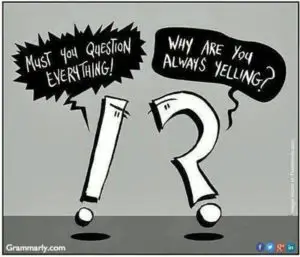*This post may contain affiliate links. As an Amazon Associate we earn from qualifying purchases.
When doubt and worry interfere with performance and the athlete cannot perform at his/her best this is sometimes known as performance anxiety. Others might simply call it choking. The following YouTube video offers some great information about what happens in the mind and body during times of performance anxiety.
https://www.youtube.com/watch?v=9xZAsuuAows&sns=em
Some anxiety is good for competing. It means you are excited and looking forward to the challenge. It also helps give you adrenalin which helps with focus and energy. But when anxiety is getting to be too much and interfering with your performance consider using these five techniques:
1. Have a mantra. When stressed most people begin to think of too may things and this creates monkey mind. It feels like when you first learn to drive a car, that there are so many things to think about that it is overwhelming. And the ride is usually bumpy! A mantra is a word or phrase one can say and focus on as a method to reduce thinking about too many things. It might be: “When in doubt breath out.” It can even be song lyrics that you sing over and over.
2. Have a routine. Knowing what you are going to do on game day or race day is extremely helpful. Know the start time and back up 60 minutes and create a good pre-competition routine. For example, prior to a sprinting race the athlete might do a light jog, stretch, sprint drills and then sprints. He may repeat this each time he races and thus does not have as much time to be idle and think. He can focus on the routine rather than the race until he is ready.
 3. Know how to talk with yourself. Anxious athletes are typically engaging in What if language in their head. What if I miss the free throw? What if I screw up? What if coach gets mad? What if thinking typically ends in more disaster type words and images. Use instructional talk on purpose. If you catch yourself thinking “what if…..?” than learn to instruct yourself to change your focus to your routine or one small action step that you can actually do. I will get my shoes on and take a few free throws. I am nervous so I will breathe and listen to music. This gets out of your fear of failure talk and into neutral instructional talk that is more productive and calming.
3. Know how to talk with yourself. Anxious athletes are typically engaging in What if language in their head. What if I miss the free throw? What if I screw up? What if coach gets mad? What if thinking typically ends in more disaster type words and images. Use instructional talk on purpose. If you catch yourself thinking “what if…..?” than learn to instruct yourself to change your focus to your routine or one small action step that you can actually do. I will get my shoes on and take a few free throws. I am nervous so I will breathe and listen to music. This gets out of your fear of failure talk and into neutral instructional talk that is more productive and calming.
4. Visualize what you need to do. See yourself performing your event. Add emotion to it such as excitement. See yourself be successful. Visualizing can activate your motor cortex of your brain and get your ready.
5. Be around people who are positive. It is helpful to have a few select people you can be around when you are anxious. These people should be more positive and know the right words to help. it can be simple, such as “you’ll do well.” But being around others who are critical or worrying themselves can be much less helpful when you have your own performance anxiety. And remember:
Perfection is the
greatest obstacle to success
–Judah Isvaran

